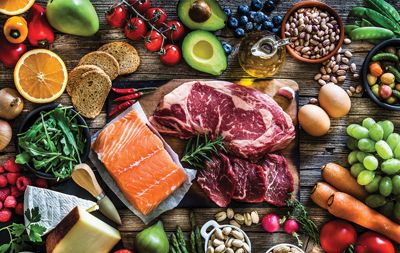FODMAP Diet Can Help Determine Which Foods Cause Digestive Problems

What is FODMAP?
FODMAP is an acronym for Fermentable Oligosaccharides, Disaccharides, Monosaccharides, and Polyols. FODMAPs are carbohydrates (sugars) that are found in foods. Not all carbohydrates are considered FODMAPs. Most people can eat this group of carbohydrates with no digestive problems. For others, the FODMAPs are difficult to digest. The response to FODMAP diet is very individualized.
Identifying Which Foods Cause Digestive Problems
The low FODMAP protocol, theorizes that lowering or eliminating FODMAPs in the diet would reduce or eliminate adverse digestive symptoms including gas, bloating and bowel irregularity. The regimen involves reducing high FODMAP foods for four to eight weeks and then re-introducing them to determine the food causing symptoms. Tracking when patients see improvements and which foods exacerbate symptoms, helps to identify which foods should be eliminated from their diet.
Which Foods Are High In FODMAP?
Below is a general list of foods to avoid and those that are acceptable. Consult with a healthcare professional before beginning any diet.
High FODMAP foods include:
- Dairy foods – milk, yogurt, some cheeses, ice cream
- Wheat, barley and rye
- Beans, lentils and chickpeas
- Select vegetables – artichokes, asparagus, onions and garlic
- Some fruits – apples, cherries, pears, peaches and watermelon
- High fiber foods – cashews and pistachios
- Sweeteners – sorbitol, high fructose corn syrup and chewing gum
- Low FODMAP foods include:
- Meat, poultry, fish and eggs
- Certain cheeses – brie, cheddar and feta
- Grains – rice, quinoa and oats
- Select vegetables – eggplant, potatoes, tomatoes, cucumbers and zucchini
- Some fruits – grapes, oranges, strawberries, blueberries and pineapple
Get Guidance From Your Healthcare Professional
In the initial phase, the low FODMAP diet eliminates many foods. Because of these restrictions it is important to consider consulting with a dietician to ensure that your nutritional needs are being met.
Removing foods that are potential triggers and then reintroducing them slowly, will help to determine specific food intolerances. Your gastroenterologist will help you track results and adjust your long-term dietary habits to improve your overall digestive health.
